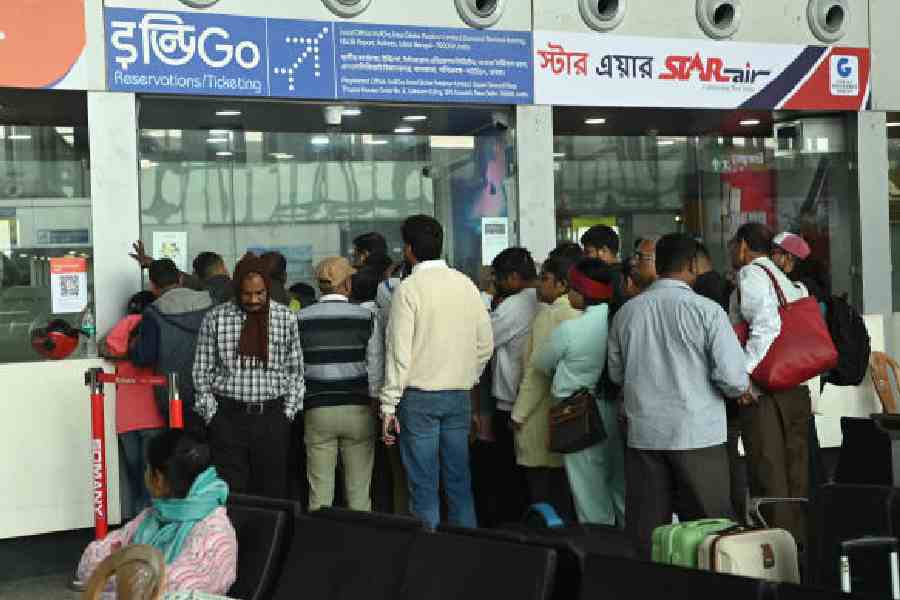 |
When Rajan Gopal announced he wanted to quit his cushy software job, his father saw red. The 26-year-old Bangalore-based professional was promptly packed off for career counselling.
It took a few sessions with Gopal before Ali Khwaja, director, Banjara Academy, got to the bottom of the matter. “He was being sexually harassed by his team leader,” says Khwaja, who counselled Gopal a year ago.
Gopal had been happy working for his IT company for three years. His female boss had been a mother figure to him when he was a fresher. Things took a downturn when she started making personal advances. “When Gopal turned her down, his boss got even by making him work long hours and gave him poor ratings,” Khwaja says.
The only way out was to lodge a complaint with the management. “Even then, I advised him not to talk about sexual harassment. No one would believe him,” says the counsellor. Instead, Gopal complained about being short-changed at work. He was moved to another department.
Sexual harassment is slowly becoming a two-way street in India’s swanky, glass-chrome corporate offices — even though it goes without saying that harassment of women by men is more predominant. Till five years ago, male sexual harassment was an oxymoron for Khwaja. “Now I get three to five cases every month. It seems to be a new epidemic breaking in urban India,” he says.
Two recent surveys endorse Khwaja’s views.
Consulting firm Ipsos (formerly Synovate) conducted a survey across seven Indian cities, polling over 500 corporate professionals, last December. It found that 38 per cent of the respondents believed men were as vulnerable to sexual harassment as women in today’s work environment, says Madhurima Bhatia, head, media engagement, Ipsos Research, Delhi.
The city-wise statistics reveal that men in India’s Silicon City face the most harassment by women co-workers. In Bangalore, half of those who admitted to having been sexually harassed in office said the perpetrator was a female colleague. In Hyderabad, 29 per cent respondents said they had been sexually harassed by their female bosses, while 48 per cent said the abuse was by male bosses. The numbers were even in Delhi.
In a similar survey — that Ipsos conducted for Viacom 18 this January — 43 per cent of men and 21 per cent of women corporate professionals said they were subjected to sexual advances by colleagues. “This indicates that either women desisted from commenting or men too now face sexual harassment in equal measure,” Bhatia says.
Workplace harassment of male professionals is increasingly being seen in industries such as IT and business process outsourcing (BPO) — where men and women spend long work hours, do night shifts and women often have leadership roles, she says. “Also, a big chunk of companies in India do not have a sexual harassment policy. Those that do are often skewed towards women,” Bhatia adds.
But India Inc is waking up to the fact that women aren’t the only targets of lust in the office cubicle. Nandita Gurjar, senior vice-president and global head, HR, Infosys, Bangalore, says the company has received complaints from both men and women employees, as well as against same sex harassment. “Our experience shows men are also subjected to sexual harassment. But the number of concerns raised by women remains higher,” Gurjar says.
Wipro Technologies too has received harassment complaints from men and women employees. “Wipro has a gender-neutral Prevention of Sexual Harassment Committee (PSHC) that conducts an unbiased inquiry into each complaint,” claims Priti Kataria, chairperson, PSHC, Wipro.
Gurjar believes gender is irrelevant in sexual harassment. “It is more a power game,” she explains. “As corporate India becomes more aware of workplace harassment, the notion that this is a women-only concern is getting toned down.”
Wasif Ali couldn’t agree more. A Delhi-based corporate professional, Ali joined the Save Family Foundation (SFF) — a men’s right group — when he was going through a messy divorce a few years ago. He was one of the brains behind Saving Men from Workplace Harassment (SMWH) — a sub-group started by SFF last year. SMWH currently runs helplines in seven cities including Delhi, Bangalore, Mumbai and Hyderabad.
Ali believes male harassment is an outcome of the increasing participation of women in the corporate workforce. “Many, irrespective of gender, use positions of power to harass juniors. Since women have entered industries like IT, financial services and BPOs in huge numbers, men are feeling increasingly victimised,” he holds.
Sameer Khanna knows that feeling. Fresh out of engineering college, he was looking forward to his first job at a Mumbai-based IT firm. He was assigned a team with a woman manager. Six months down, Khanna’s manager asked him to accompany her on out-station client visits, which soon started extending into weekends.
“She then tried to get intimate with him. It made him uncomfortable,” says Dayal Mirchandani, founder, Behavioral Science Foundation, Mumbai.
Even though the young techie found the situation sticky, he was wary about lodging a complaint. “He was sure his grievance would not be taken seriously. He finally found another job,” says Mirchandani, who counselled him.
In Indian offices, sexual harassment is clearly becoming an issue that the sexes are battling with. The reasons don’t just stem from prolonged contact, but also from the fact that professionals are often in stressful or long-distance personal relationships.
“So anyone — man or woman — can get attracted to a colleague,” explains Mirchandani. When that happens, power equations also come into play. “The senior throws his or her weight around,” he says.
Virag Dhulia, head, gender studies, Confidare India, a Bangalore-based men’s rights group, believes male harassment goes largely unreported in India because victims don’t speak up. “And when they do, the companies downplay it,” he says.
The low complaint rate of male harassment is also because it’s often difficult to prove the crime, reasons Ambereen Pradhan, director, Energia Wellbeing, a Mumbai-based corporate psychological counselling company. “Men don’t report the matter because they can’t prove it. But that doesn’t mean they are not being victimised at work,” he adds.
Ajinkya Diwan, a Pune-based IT professional, says he was ignored when he complained to his company’s HR team about being stalked by a woman colleague. “She would call my parents to chat. She’d get into my car and ask for a drop back home. She landed up home on my birthday,” recalls Diwan. When he complained to HR, they sat on the matter, he says. “I had to push them before they said they’d act,” he says.
“Mindsets need to change,” adds Dhulia. “If someone is uncomfortable with an unsolicited advance, the complaint should be taken seriously, irrespective of gender.”
Women on top
In Bangalore, half of those who admitted to having been sexually harassed in office said the perpetrator was a female colleague
In Hyderabad, 29 per cent of respondents said they had been sexually harassed by their female bosses
In Delhi, 43 per cent of those polled said they had been harassed by their female colleagues; an equal number accused their male colleagues of sexual harassment
Source: Ipsos survey of 500 company executives in December 2012
(Names of some victims have been changed to protect their identities.)










